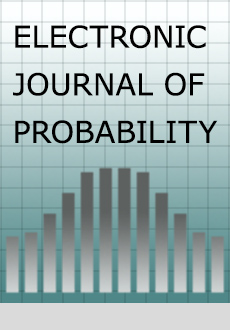Abstract
Kardar-Parisi-Zhang (KPZ) equation is a quasilinear stochastic partial differential equation (SPDE) driven by a space-time white noise. In recent years there have been several works directed towards giving a rigorous meaning to a solution of this equation. Bertini, Cancrini and Giacomin have proposed a notion of a solution through a limiting procedure and a certain renormalization of the nonlinearity. In this work we study connections between the KPZ equation and certain infinite dimensional forward-backward stochastic differential equations. Forward-backward equations with a finite dimensional noise have been studied extensively, mainly motivated by problems in mathematical finance. Equations considered here differ from the classical works in that, in addition to having an infinite dimensional driving noise, the associated SPDE involves a non-Lipschitz (specifically, a quadratic) function of the gradient. Existence and uniqueness of solutions of such infinite dimensional forward-backward equations is established and the terminal values of the solutions are then used to give a new probabilistic representation for the solution of the KPZ equation.
Citation
Sergio Almada Monter. Amarjit Budhiraja. "Infinite dimensional forward-backward stochastic differential equations and the KPZ equation." Electron. J. Probab. 19 1 - 21, 2014. https://doi.org/10.1214/EJP.v19-2709
Information





